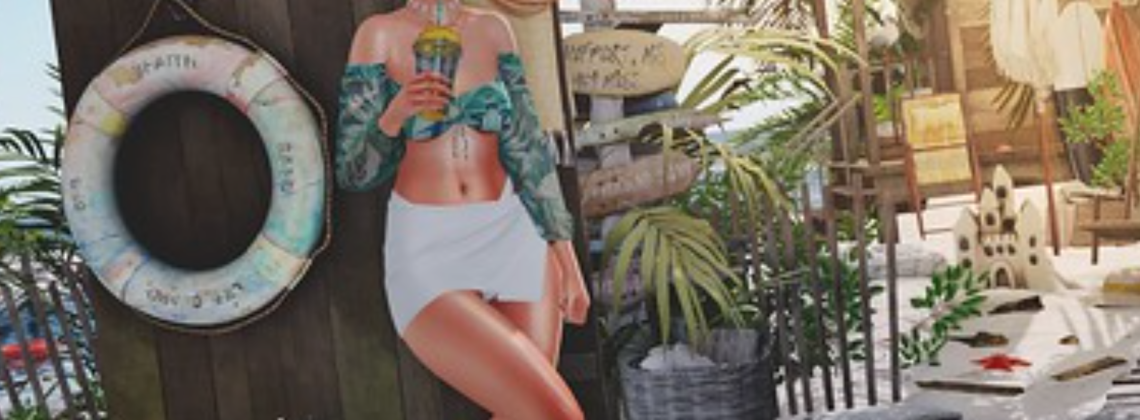

The annual check-up on our capacity for joy
The sun is up. Cicadas whirr from the trees behind and birds trade greetings overhead. The iced drink beads the glass, breezes rustle, and shadows are sharp on the grass.
What am I supposed to do with the day?
A strange stirring, a sense of dissatisfaction, a yearning—this is summer anomie. Summer anomie is unrest, feeling unmoored from settled demands, the demand to be leisured and the pang not to be. This anomie is partly what people call decision fatigue, being less satisfied when we have many options, regret that we might not have picked the best one. But the feeling is bigger than that—amorphous, ragged, inky.
Summer is the not-normal time, what paradise is supposed to be like. To be sure: I feel the pleasures of summer—the hammock and cold beer, sun on bare shoulders, the bright sting of cold water in the lake or pool when the day is properly hot. But unlike paradise, summer ends. The end of summer is spring-loaded into every subdivision of it, like a jack popping out of the box each month (went too fast), each cycle of fruit-ripening or holiday (berries, Bastille day, Juneteenth, Fourth of July), each bright new morning (dew burnt off already). Pow, it blares—this is going to be over soon.
For some people, dread of the end steals joy in the meanwhile. For others, the problem is not that it will all be over soon but that they will not get enough out of it while it’s going.
Even when we judge the other parts of the year as fine, summer prompts us to let loose, as Boston son-of-presidents Henry Adams remembered letting loose in his childhood: “Winter was always the effort to live; summer was tropical license. Whether the children rolled in the grass, or waded in the brook, or swam in the salt ocean, or sailed in the bay, or fished for smelts in the creeks, or netted minnows in the salt-marshes, or took to the pine-woods and the granite quarries. . . . . Summer was the multiplicity of nature; winter was school.”
My jobs mostly have been in university settings, so summers come like clockwork. School lets out but work does not stop. In summer faculty are supposed to get most of “their” work done, the kind of work hard to complete while teaching. They also prepare syllabi, setting the table for students in the fall, a holiday in the way that Thanksgiving is a holiday for the person roasting the bird or washing the dishes.
It may sound like a snob thing to say, that the academic calendar marks summer for me. But like Adams said, there’s school and there’s summer. Counting time that way it is not just an elite phenomenon. For many—most?—Americans, summer is signaled by the last day of school and the first day of school. School is how American kids learn what summer is in the first place. Having to be somewhere Monday through Friday, September through May, is what makes June, July, and August a season, the season when one doesn’t have to do what is normal the other months. Vacation only makes sense as a break from something that is not vacation. The academic calendar also shapes the hot months for people who don’t get their “summers off.” Parents need to find childcare (otherwise known as “camp”) to cover those hours. Those far from ivory towers have their lives categorized by academic summer too—travel and hospitality entrepreneurs who make a year’s money in the high season, not to mention townies and retirees who hunker down or head for hills when their haunts get overrun by vacationers.
Anomie is available to any adult with space in the summer to feel it. The real virtuosos are adults who care for people who may not feel summer anomie or know how to name it when they do. Too much time can be wearying for those without resources, even interior resources, to swim through it. People whose time is unstructured—the sick, the elderly, the unemployed, children—require structure from those who care for them. Dispelling somebody else’s boredom is laborious.
I have friends who enjoy everything about summer, the weather no matter how hot, the places they go, the people whose time they have more of in that season, which makes summer like gift-wrap rather than the gift itself. They rue it when their kids have to go back in the fall. But more parents I know are worn out by August and make back-to-school shopping a victory lap. That relief is okay.
The worse complaint is when kids themselves say they’re ready to go back to school. They say they’re bored. I say that’s summer anomie. What could be the human sickness that makes children prefer the going back to the freedom of summer?
The feel of the weather implies that we should be doing something better than what we do with our ordinary time. For agriculture, summer is the ordinary, hard-work season. For liturgical Christian churches it’s mostly Ordinary Time too, green vestments and synchrony with the natural world, when God is doing nothing big like being born or rising from the dead or looking like fire or rising into clouds. Being ready to go back to school may be our own judgment of our shallow capacity for joy.
Don’t blame this one on the Puritans. Summer anomie is of far earlier origin. Starchy seventeenth-century Massachusetts judge Samuel Sewall hymned the seasons, summer included, in his reflection on Plum Island, rejoicing when “free and harmless Doves shall find a White Oak of other Tree within the township to perch or feed, or build a careless Nest upon.” FOMO of cosmic mundane proportions, that’s summer anomie. What should I be doing with my time, is it right for me just to sit here in sun with a lemonade, is that sloth or leisure, or should I be making/ doing/fixing/writing something? Having time, having time open, having time not measured in unusual units when we are doing the usual things pledged to employer or partner or God, can expose panic. Can any among us really say, It is finished, I have done the work given to me to do? Or is it right to sit here under this vine and fig tree to rest? That’s the summer anomie.
Agnes R. Howard teaches in Christ College, the honors college at Valparaiso University, and is author of Showing: What Pregnancy Tells Us about Being Human. She is a Contributing Editor for Current.
She appears to be wearing leggings on her arms, and during a sweltering day at the beach at that. Is this actually a thing people do, or is this AI gone haywire again?